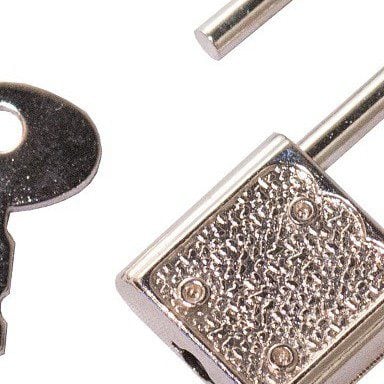
Disclosure:- This site has an affiliation with IAP Career College and should you purchase something from a link I may receive a small payment at no cost to you. I am not an employee of any company mentioned and all opinions expressed here are mine and are not representative of any company.
- The Importance of Bookkeeping.
- Is Freelance Bookkeeping Profitable?
- Accuracy is vital.
- The two most important things any Good Bookkeeper should Know.
- Can a Bookkeeper move into Accounting without a degree?
- What Qualifications do Bookkeepers Need?
- The Normal Steps to Becoming a Bookkeeper
- Money...
- How much Money can a Freelance Bookkeeper make?
The Importance of Bookkeeping.
Bookkeeping is of utmost importance to all kinds and levels of businesses. It is essential to small businesses because it helps them stay on track toward profitability or scaling up.
It helps small businesses keep their heads above the financial baseline and can prevent the owners from ending up in a financial body bag.
Is Freelance Bookkeeping Profitable?
Yes, but… For any freelance business to be profitable you need (a.) Good clients. (b.) Be good at what you do. Freelance Bookkeeping is no different. You can start without any qualifications but, to be profitable you really have to know what you are doing. Your client has delegated the problem of his bookkeeping to you because it is one less problem he has to deal with. He is probably solving problems for his permanent staff all day, Don’t add yourself to the list. You’re a freelancer. You should know what you are doing.
Successful freelance bookkeepers generally have these 5 things in common:-
- Acting professionally with integrity at all times (slip up and you’re dead, reputation is everything).
- They have some qualification(s)/experience in bookkeeping. They had to pay to get them, so be prepared to spend some money and stay up studying until late at night.
- Have an intimate knowledge of bookkeeping fundamentals.
- Understand software, Quickbooks, or other bookkeeping systems and tools. Software cannot teach business owners bookkeeping, regardless of what the ads say. There are many horror stories of businesses trying to do their own bookkeeping using some whizbang software, then needing a bookkeeper to clean it up, after the tax man has rejected some of their deductions or slapped them with a fine.
- Have a love of solving problems and seeing a business thrive.
As a freelancer, you have stepped up for control of your own life Be serious about what you do.
Scary uh?
You don’t have to take yourself seriously though. If you get what I mean.
One last thing:- Becoming a good bookkeeper will keep you in work for life.
Good ones are hard to find, and the number of businesses increases globally every year.
Let’s take a look at some of what a bookkeeper can be expected to do.
What does a Bookkeeper do most days? (besides drink coffee)
The definition goes something like this. The activity or occupation of keeping records of the financial affairs of a business.
This can include:-
- Recording Transactions
- Prepare financial statements
- Tax Preparation. GST/VAT payments.
- Handle accounts payable
- Payroll Processing
- Stocktakes.
- Filing receipts
- Reconciling expenses
- Managing bills payments
- Producing financial reports for record-keeping purposes
Accuracy is vital.
It’s a bookkeeper’s job to make sure that the accounts are valid and up-to-date for when the accountant needs them.
This lets the accountant use their analytic knowledge to make business recommendations and complete any tax returns
The two most important things any Good Bookkeeper should Know.
- Have an intimate understanding of accounting principles. You need to be able to collate your client’s data accurately. If you are unsure of what you are doing and have to spend a lot of time thinking about whether “X data” is a consumable or asset, you are showing yourself to be a “second-rate bookkeeper”
- Get a good understanding of the business. Know everything about it, and stay ahead of the curve on things like sales taxes. (GST, VAT, and the like).
The Key Differences Between Bookkeepers and Accountants.

Compared to years past, the differences between the two are becoming more blurred.
Nowadays there is a tendency of overlapping in both of these roles.
In a nutshell:-
Bookkeepers are responsible for looking after the books and preparing information for accountants.
The major objective of bookkeeping is to keep a record of transactions in a logical, organized manner.
Accountants have the skills to review and analyze the data provided by bookkeepers to benefit the business and provide it with a suite of services.
This can include completing tax returns and offering advice about lowering expenses and maximizing profits.
At the end of the day, in the context of decision-making, the management of a company won’t make a decision based on the data provided by a bookkeeper.
An accountant’s role is much more analytical, so companies make long-term critical decisions based on the data provided by the accountants.
Can a Bookkeeper move into Accounting without a degree?
Sure.
Although I am talking about freelancers. If you are employed as a bookkeeper and want to move into accounting within your company, without going back to university it is achievable.
A lot will depend on your boss though. Sometimes it may just not be feasible.
Consider joining a school board or nonprofit board, volunteering at your child’s school as treasurer, or setting up your own small company and taking on clients separate from your day job.
Another way to gain experience is to find a small business or family friend who can provide you an opportunity to help with one of their work projects, which will allow you to gain practical skills in areas such as analytics, customer acquisition, social media, or marketing.
Mastering “soft” skills like cross-functional communication, complex problem-solving, stakeholder alignment, and inclusive leadership is what advances employees to higher levels
Harvard Business Review.
What Qualifications do Bookkeepers Need?
Essentially you don’t need any formal qualifications.
But:- There is more to bookkeeping than just sorting through a bunch of receipts in a shoebox.
You know that of course.
There are formalized courses that can take years to complete, along with a few thousand hours of work experience.
But you definitely don’t need to be a CPA or have a degree to start a profitable freelance bookkeeping business.
At the very least you will need the following basic skills:-
- Basic computer skills: (pretty much a pre-requisite for most jobs these days).
- Have a way with numbers. be comfortable in dealing with more than elementary math. The knowledge you require will depend on the type of businesses you become involved with. Many bookkeepers specialize in one industry.
- Be organized: You are dealing with documents and numbers. Keeping things in their own column and being accurate is more than important. You probably like color coding to make things easier. But, being on top of the game is what counts here.
- Have an eye for detail: If something is not adding up, don’t be afraid to ask if the business has given you everything.
- Be personable: approachable, likable, charming, call it what you will, but creating good relationships will go a long way to getting and keeping clients, even if you are working remotely, and you only contact each other via email or zoom.
- Be a multi-tasker: If you are working remotely or at a client’s business, be prepared to deal with any interruptions (inquiries), from other clients/potential clients who may have questions.
- Be serious about your business: Starting a bookkeeping business, like any business is going to take time to establish. You will have setbacks, it may take some time before you have a pool of regular clients who rely on you to do their bookkeeping, and who you are happy to work for.
The Normal Steps to Becoming a Bookkeeper
- 1. Graduate from high school. Accountants have associate’s or bachelor’s degrees (generally).
- 2. Get training. Bookkeeping training can come from a variety of sources.
- 3. Apply for positions.
- 4. Get hired. Spend the next 30+ years with that employer.
Whether you are a school leaver or someone who wants a change, everyone has the same problem to overcome. Getting started.
Getting started is hard. Some can get right to it. Most of us dilly dally, umm and ahh, and that is as far as it goes usually.
Getting started on the right track is even harder.
One course (of many), that will set you in the right direction is the IAP bookkeeper certificate course.
This course will give you the training so you have 3 options upon completion. (It is a little non-traditional).
- Gain a position as an employee
- Work as a freelancer
- Set up your own Bookkeeping business.
It is done online and has a recommended completion time of 6 weeks.
However, you can take as long as 12 weeks to complete it.
You can also call upon a faculty member to provide you with assistance to help you succeed in this course.
As well they also offer advice to help you succeed in your career, and you will have the e-book edition of the IAP career college guide to become a bookkeeper to fall back on throughout your career.
Once you have the certificate in your hand you should be on your way to working as a bookkeeper.
There will be assignments to complete. While most courses focus just on the academic side, IAP courses include real-life activities.
So, while IAP gives you the knowledge, plans, and some actionable tasks.
At the completion of the course, all you have to do is continue with the action.
So…
Don’t just become a bookkeeper. Become a great bookkeeper.
I have no problems recommending IAP career college. It prides itself on its reputation and is a very reputable company.
Plus, their certificate courses are very reasonably priced and better organized, compared to other online learning organizations.
The best part in the overall scheme of things, is their courses don’t take long to complete.
They have been in business for more than 20 years with barely a complaint.
So they have to be doing something right.
My experience with IAP Career College was exceptional! I loved how the courses get right to the main points and you learn so much in a short period of time.
Kari Miller, Ohsweken, Ontario.
IAP Career College was perfect for me as I work full-time and have 4 children. Each week’s assignment was manageable and I had plenty of time to get everything done.
Dawn
The staff are friendly and very helpful if you run into any problems. Most responses were the same day so that I could keep moving forward and stay on track.
I would highly recommend anyone wanting to take a class through IAP, it was a fantastic experience and I can’t thank them enough!!!
Money…
How much Money can a Freelance Bookkeeper make?
The $64 question.
As of October 27, 2022, the average hourly wage of a bookkeeper in the United States is $20.00 an hour. Typically it falls between $18- $23 an hour. The hourly rate can vary widely depending on many important factors, including education, certifications, additional skills, the number of years you have spent in your profession.
Google
That is what you can expect if you are employed by a company. I have seen entry-level bookkeepers’ income as low as $15.00 per hour though.
A lot would hinge on certifications as to the level of income you start at, but $15-$18.00 per/hr. Is an average ballpark figure for someone just starting out.
For Freelancers
As a bookkeeper, your income is determined by a number of factors, including: your experience, location, specialization, and how much revenue your bookkeeping services generate if you own your own bookkeeping business. According to data from PayScale, the average income for a small business owner in the United States is $73,000 – however this can range up to $182,000 or more.
Payscale.
Once you have some experience under your belt, it is a lucrative business to be involved in.
As a freelancer, you have the option of being as busy as you want to be.
The rider though, is you must be prepared to put in the initial hard yards and follow through on the training.
As usual, there are Pros and Cons of working for yourself.
I could make a list and go all negative. I can be a little dramatic at times.
Don’t be someone who, in 5 years time says, “I wish I had done that…“
Quick tip about bookkeepers.
Bookkeepers normally have a calming influence, although they can be scary if you try and remove something from one of their document trays.
Thanks for reading.











Thanks for sharing this useful information. Bookkeeping is an important part of our business, and this course is ideal to have as an in-house resource.